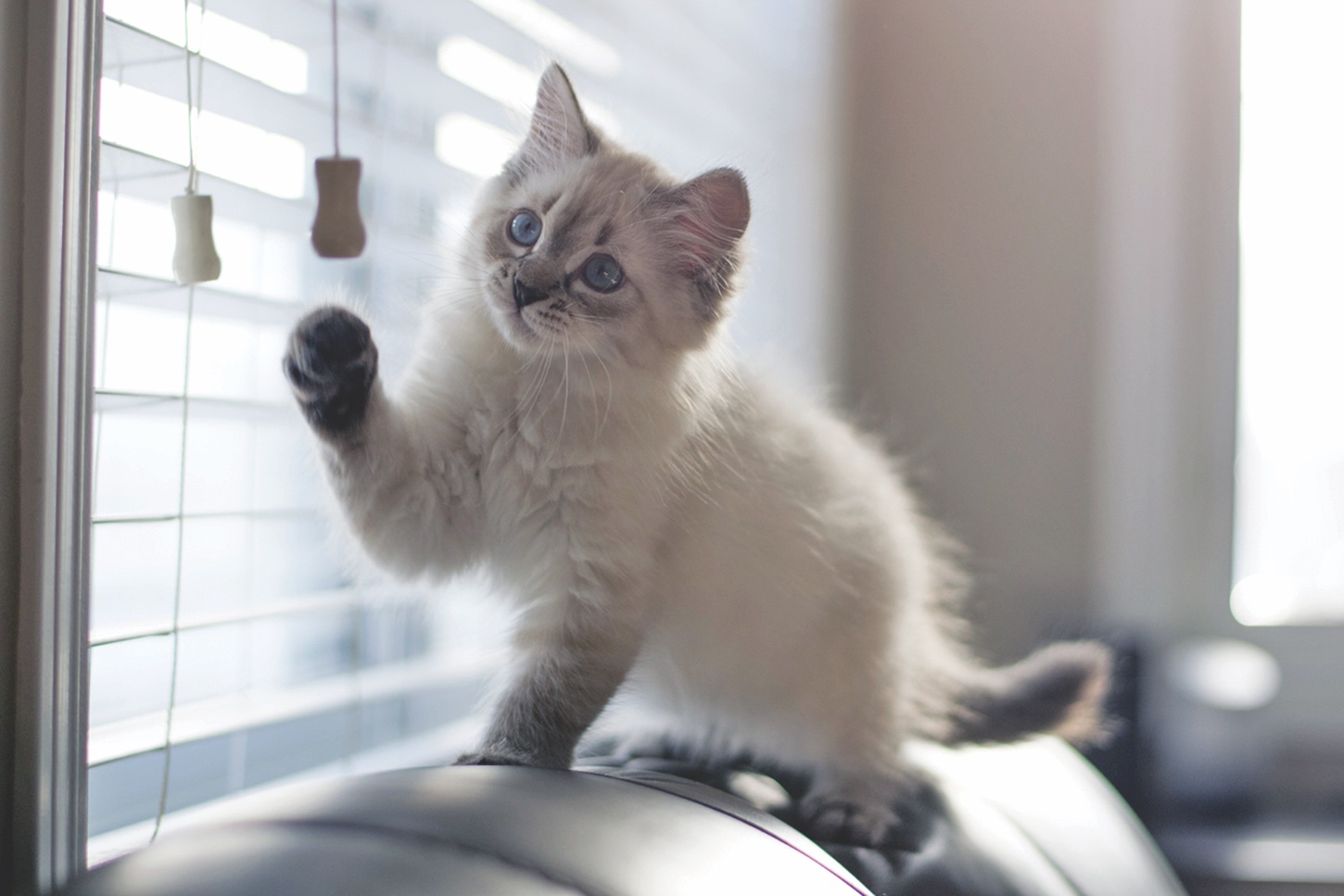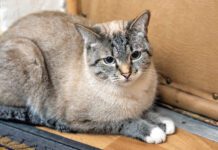Research shows that indoor cats live longer (to between 15 and 17 years of age) than outdoor cats (to between 2 and 5 years of age).
This disparity is largely due to the increased risk of infectious diseases, automobile accidents, predators, and harsh weather conditions that outdoor cats are exposed to but. But while getting hit by a car, beaten up in cat fights, and killed by predators can be scratched off your worry list for indoor-only cats, they are still subject to health hazards, including some that are unique to living indoors.
 Poisoning
Poisoning
Toxins, including a variety of plant species found inside and outside the house, top the list of concerns for indoor cats. For cats who like to chew on vegetation, consider growing cat-safe greens such as catnip, cat grass, oats, wheat, and barley.
While any cat owner can tell you just how difficult it is to give your cat a pill, cats themselves are often intrigued by any pills or medications you drop. While playing and chewing on these items, they can ingest toxic amounts.
Human Foods
While dogs are known for stealing or sneaking dangerous human foods, some cats will attempt to steal foods such as ham and bacon, which can be high in fat and can predispose to pancreatitis.
Grapes (and obviously raisins), onions, and chocolate are also among potentially toxic foods for cats, as are caffeine-containing products like coffee. Alcoholic beverages can also be toxic to cats, so don’t leave these drinks around unattended.
In general, cats don’t have the sweet tooth that dogs do since they lack a sweet taste receptor, so they aren’t as likely as your dog to raid chocolate. Cats are also not as susceptible to xylitol (birch sugar) poisoning as dogs, but it would still be a good idea to keep any xylitol-containing items safely away from them.
Luckily, most adult cats are sensible and adapt to living indoors very well. The biggest risks for exposure to these indoor hazards is seen in kittens, so consider a large crate to keep your kitten safely confined when you aren’t around.
Being cognizant of and preventing exposure of your cat to these hazards is an important aspect of keeping indoor cats safe.
Remember that your veterinarian is the best source if information and guidance if you are concerned about potential intoxication of your cat.




